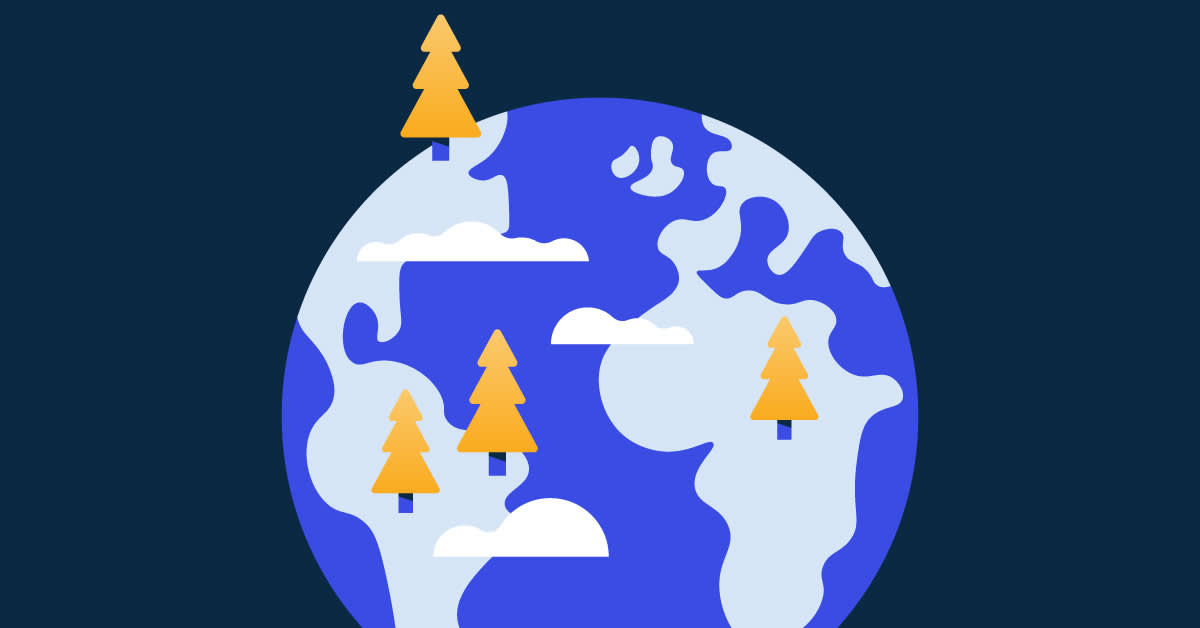This post was originally published on Audible.com.
For as long as I can remember, I’ve felt at home on the water. I grew up in a coastal neighborhood in south Brooklyn, surrounded by the sulfuric scent of low tide and the ubiquitous squawk of seagulls overhead. I learned how to swim in an inlet of the New York Bay, discovering not only how to move and keep myself afloat but also how to exist alongside the tide, paddling with the waves instead of fighting against them. I loved the wildlife too—the clams that would spray water up from their hiding place in the sand, the pipers pecking the shoreline for flies and sand fleas, the glossy, almost imperceptible fry glittering along the coast. Along with this adoration came immense respect for the sea's power. I had witnessed the water's might as well, the indomitable lull of rip currents, the searing graze of a jellyfish's tentacles, the hazy darkness of its depths.
Though often taken for granted, Earth’s oceans and the many ecosystems housed within them are foundational to all life, on sea and land alike. And yet, international waterways face greater threats than ever, imperiled by factors including climate change, pollution and plastic debris, offshore drilling, and destructive fishing practices. As we recognize World Ocean Day, celebrated annually on June 8, we’ve curated a collection of listens to inspire you to learn more and take action to recognize, restore, and protect the sea and all its inhabitants.
Of legendary natural historian Sir David Attenborough's latest, my colleague Michael Collina writes, "As the world’s leading broadcaster and conservationist, Sir David has seen and filmed in just about every major ocean habitat there is. But rather than simply reporting on the creatures that make our oceaans so special, Attenborough and his longtime collaborator Colin Butfield dive into the urgent need to protect and restore our oceans as a means to safeguard the planet from climate disaster. Though it might sound scary, it’s also a message of perseverance and hope, because the science shows that our oceans are so much more resilient than we ever could have imagined."
Frequently misunderstood and too often maligned, sharks have long been a specter in the public consciousness. Thankfully, the narrow perception of sharks as mindless hunting machines is increasingly out of favor. Through conservation efforts, respect for these complex, awe-inspiring creatures has become more and more widespread, even as we have so much more to learn about them. Marine biologist Jasmin Graham specializes in elasmobranchii, including hammerhead sharks and the critically endangered smalltooth sawfish. In addition to fighting for ecosystems and climate justice, Graham is a strong proponent of diversifying the marine biology field through mentorship and specialized programming for gender minorities from communities of color. She chronicles her dedication to democratizing the ocean sciences in Sharks Don't Sink, a memoir of her life as a self-described "rogue shark scientist."
In 2015, wildlife filmmaker Tom Mustill had an unshakable encounter with one of nature’s most awesome gentle giants. An adult humpback whale, larger than a bus and weighing several tons, had breached on top of Mustill’s kayak, capsizing it. A video of the astonishing incident went viral, and Mustill, who survived entirely unscathed, found himself driven to better understand these creatures, how they think and feel, and how to establish a sense of communication between animals and human beings. In How to Speak Whale, he chronicles the tech advancements promising a method of decoding animal songs, calls, bellows, and roars, offering a window into their emotional lives and the undeniable intelligence of beings other than ourselves.
Legendary marine biologist and conservationist Rachel Carson forever changed the way we view and interact with the natural world. Her 1962 classic Silent Spring is widely credited with sparking the conversation on pollution and the modern environmentalist movement, but it was her National Book Award-winning The Sea Around Us that captured the very soul of our planet’s oceans. Though it covers more than 70 percent of our planet's surface, the sea and its vital connection to humankind and all living beings is often overlooked. In language both poetic and crystalline, Carson crafts a masterful portrait of the deep, from its origins to contemporary scientific observations. Jeffrey Levinton, an expert on ecology and evolution, brings this essential volume up to date with a new chapter on the most pressing issues threatening marine life today, and narrator Kaiulani Lee brilliantly mirrors the ebb and flow of Carson's exploration with her rhythmic, soothing delivery.
Despite their major presence in our lives, very little of our global oceans have actually been explored, mapped, or charted. Among the greatest mysteries is that of the ocean floor, an ecosystem as biodiverse as it is deep and dark, and thus, difficult to navigate. Yet what we do know of the deep sea is truly remarkable, a truth that marine biologist Helen Scales deftly explores in this author-narrated listen. The Brilliant Abyss takes listeners on a journey thousands of feet below the water's surface, illuminating those dim, unknowable trenches to bring into full view the vivid and varied landscape. Scales also explores the deleterious effects human beings have inflicted on these ecological communities in pursuit of material wealth through the harvesting of much-desired deep sea mineral resources.
Far too often, human beings operate on the supposition that we are the only wholly intelligent, emotional beings on Earth. This presumption, scientific philosopher Peter Godfrey-Smith argues, could not be further from the truth. In Other Minds, Godfrey-Smith muses on the inner lives of cephalopods, creatures like the squid, cuttlefish, and octopus that, despite evolving in vastly different circumstances than our own, display a stunning sense of intellect. He traces cephalopod lineage back to the very beginnings of animal life, revealing how primitive subaquatic cellular organisms developed into the beings we recognize today, and assesses just how the solitary octopus prospered, advancing as one of the sharpest, most remarkable minds in the animal kingdom. Probing theories of consciousness and what it means to be, this listen is well worth pondering.
Coral reefs are sometimes referred to as the "rainforests of the sea” due to the sheer biodiversity of these underwater ecosystems. Millions of species live among reefs, from corals and clams to seahorses, sponges, and sea turtles. Reefs and rainforests also share a grimmer similarity—they are both in tremendous danger, their very existence threatened by human behavior, disease, and the devastation of the ongoing climate crisis. In Life on the Rocks, Juli Berwald turns her ocean scientist's eye toward the need to protect these radiant oceanic microcosms before they’re damaged beyond repair by factors including boat groundings, overfishing, and increasingly warmer waters. In her own voice, Berwald recalls her encounters with scientists and environmental advocates working tirelessly to protect reefs and rebuild the ecosystems that are home to so many. Throughout, she brings a memoirist’s flair to her storytelling, emphasizing the importance of maintaining hope in fights both intimate and large scale.
Few living beings are more misunderstood and unjustly villainized than the shark. The powerful predators are frequent fodder for horror films and their considerably infrequent attacks on humans kindling for incendiary headlines. Given the fact that humans pose a far greater threat to shark populations than they do to us, it’s imperative that we not only dispel long-held myths about these magnificent creatures but begin to urgently advocate for their protection. Paul de Gelder will be familiar to fans of Discovery Channel’s Shark Week programming—in 2009, the Australian navy vet had a fateful encounter with a bull shark in Sydney Harbor during which he lost two limbs. Now, in Shark, de Gelder pens a most unexpected love letter to the creatures that upended his life, sharing what he learned about sharks and the wider oceanic ecosystem while recovering from the attack. Bringing some serious narrative skills honed in his public speaking and television hosting gigs, de Gelder appeals to listeners directly, underscoring just how pivotal sharks are to the balance of the sea at large.
Whales are awe-inducing creatures, staggering in their size, methods of communication, and social behaviors. Rebecca Giggs, a writer who focuses on our relationship with and attitude towards our nonhuman counterparts during a time of environmental upheaval, turns that perspective towards the inner lives of whales and how they’ve experienced and adapted to widespread ecological change. A work of natural history and contemporary science reporting with a thoughtful philosophical edge, Fathoms traces defining moments in the culture of whales, from the brutality of the early whaling trade to the diverse beauty of whale song, the impact of human intervention and climate change woven throughout. Guided by Shiromi Arserio’s gentle performance, this acclaimed work ultimately challenges human listeners to understand their undersea neighbors with greater complexity and compassion.
A fascination with the ocean and its many curious and colorful inhabitants is often relegated to the realm of kid stuff. But in this Audible Original podcast, host and evolutionary biologist Ben Garrod proves that learning more about our planet is a lifelong process, one that we never really grow out of. In A Grown-Up Guide to Oceans, Garrod takes listeners on a journey from the beginning of life on Earth to the present day, emphasizing throughout useful knowledge and actionable advice on how to protect our waterways. From the dawn of the vertebrae to intelligent life under the sea to climate change's affect on the sea, this listen is a valuable resource for anyone looking for a thorough primer on all things aquatic.























